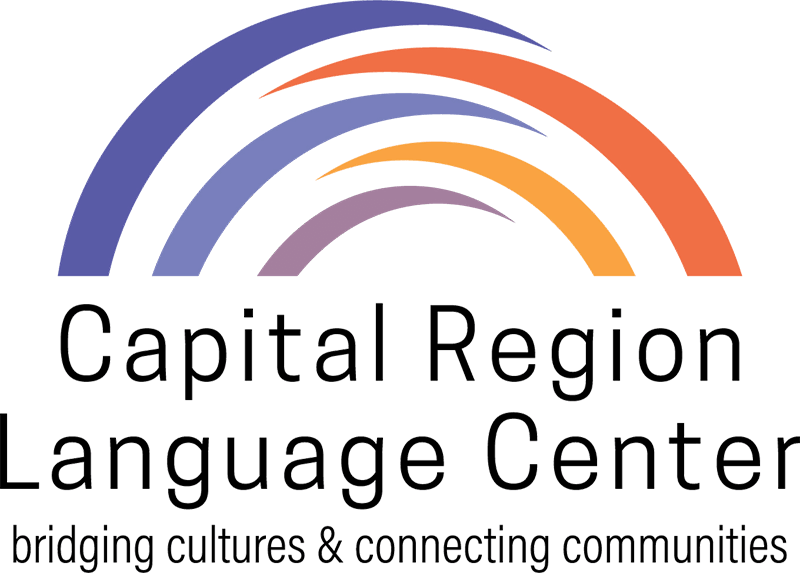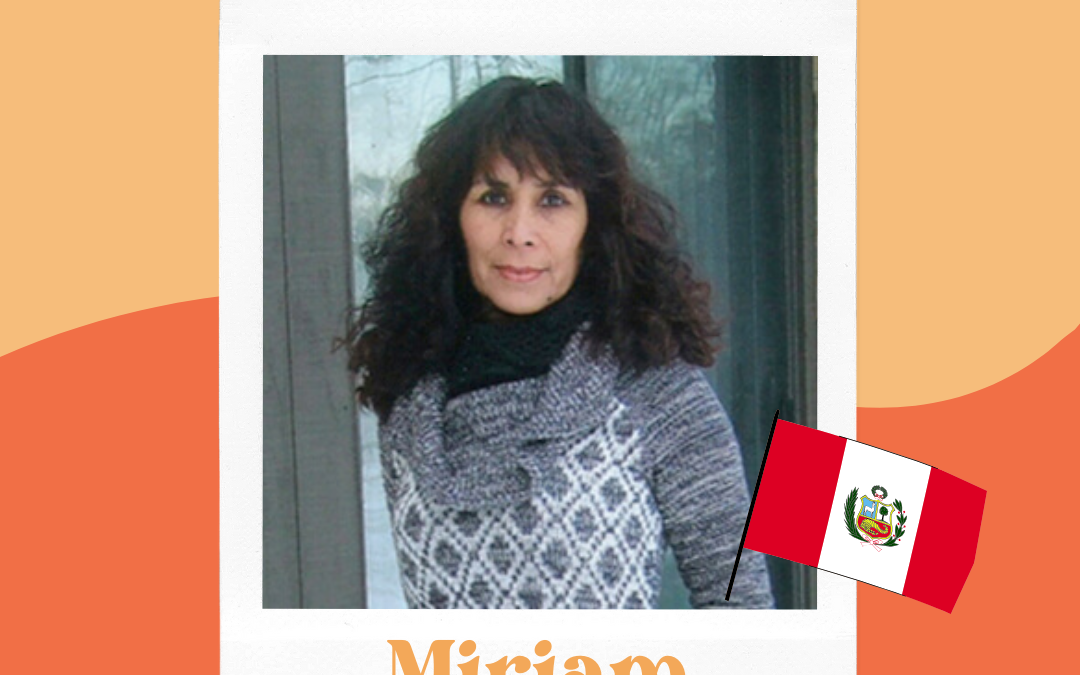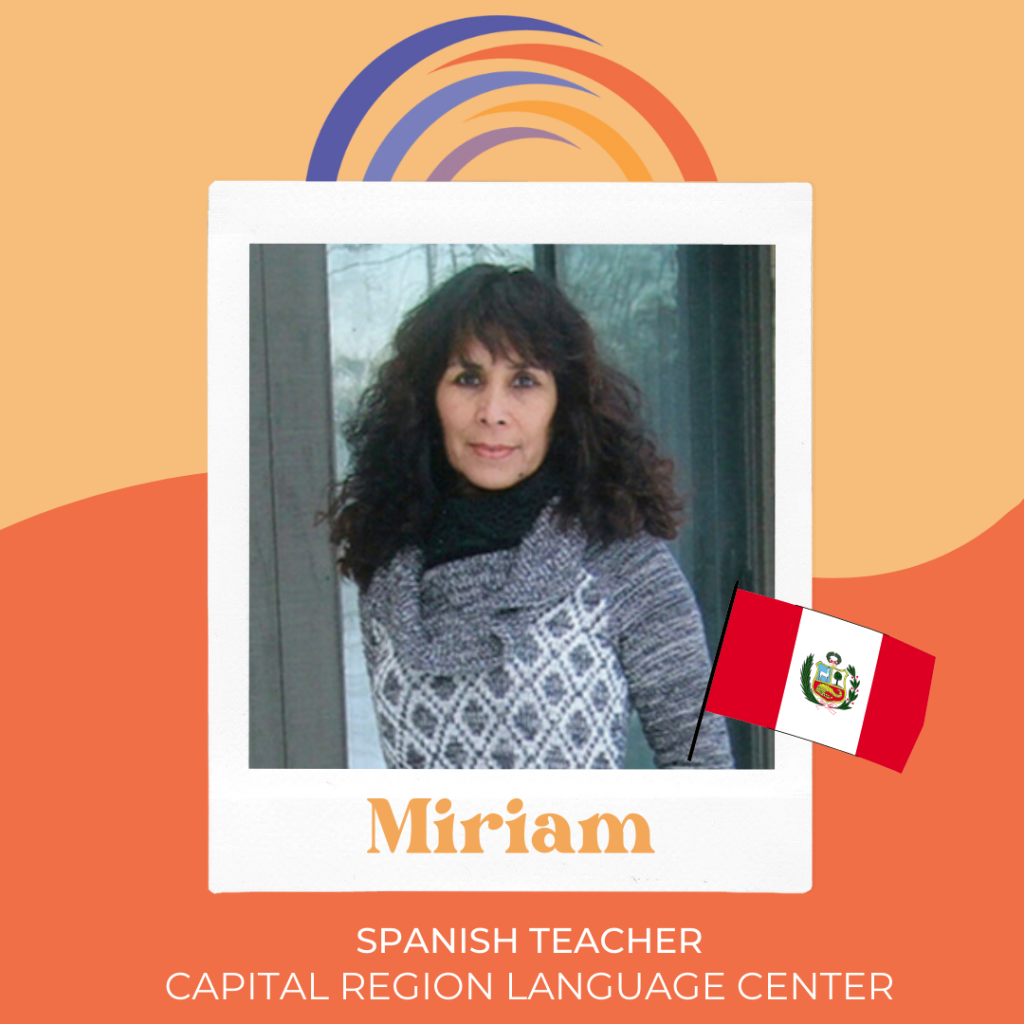At Capital Region Language Center, we love our language teachers!
With a team of more than 30 world language instructors, hailing from countries across the globe, what connects them is a passion for sharing a language and culture they love. Below, we invite you to get to know three of our teachers: Miriam, Jiwan and Evelin — including their favorite word in the language they teach.
MIRIAM ROGERS, SPANISH LANGUAGE INSTRUCTOR
Why did you become a language teacher?
Simple: the combination of what I know (Spanish) and the skills that I have. I help people learn a language and all the elements it includes: culture, customs, history, and idiosyncrasies of Latin culture. As someone from a Spanish speaking country and a member of the Latin community, I think all this is valuable to share with learners.
Can you share an example of how CRLC’s Spanish language instruction has helped a local business or organization?
Our Spanish course for health care workers provides the basics to help interact with Spanish speaking patients. It was rewarding to learn of a story in which two participants were able to use basic Spanish in their jobs to communicate with a patient who didn’t speak English. They managed to ask him the questions to find out what the medical issue was and helped him get to the hospital.
What is your favorite Spanish word?
“Al toque,” is a common colloquial expression in Peru and some South American countries. It means “immediately.” If you want to say, “Do it right away!” you say “¡Hazlo al toque!” Need to buy something immediately? Say, “Lo compro al toque.” I love it because it’s short and clear. You don’t need to explain anything extra. When you say something, followed by “al toque,” you mean right away!
JIWAN PARK, KOREAN LANGUAGE INSTRUCTOR
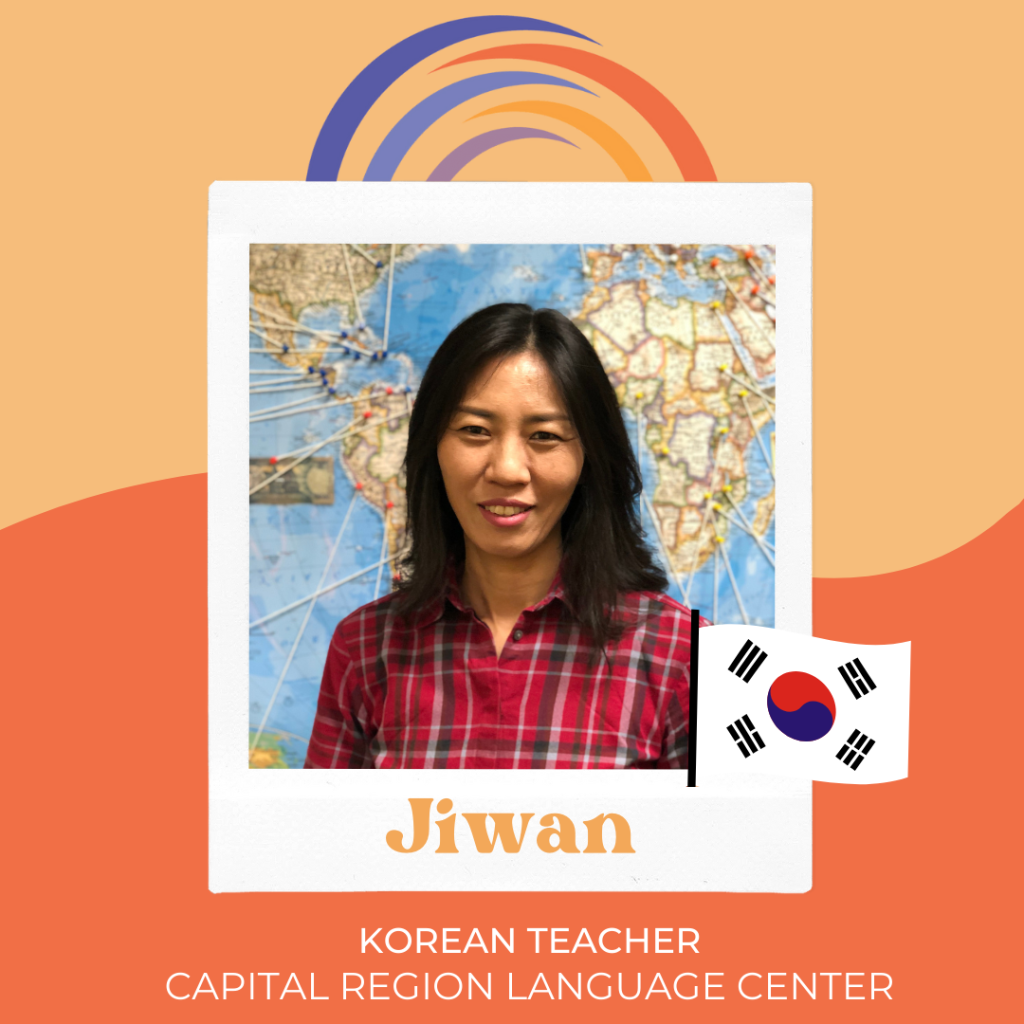
Why did you become a language teacher?
I started as a Kindergarten teacher in Korea. After getting married, I started living abroad but wanted to continue teaching. I worked as a Korean language teacher, and while I’m a native speaker, teaching it requires more methods and knowledge. So, I went back to university and gained a deeper affection for the Hangeul and Korean culture. Teaching a foreign language is not just about words. It is about sharing emotions and culture, too.
Can you share an example of how language instruction has helped a local business or organization?
I taught in Singapore, where people from various countries gather. It is near Korea, and many wanted to learn Korean to get a job or study. However, we couldn’t talk to each other because we were from different countries and spoke different languages. At first, the classroom was very quiet. But as time went by, it became noisy. This made me happy — to see people from various countries communicating in Korean!
What is your favorite Korean word? What does it mean and why do you love it?
My favorite word is “안녕” (an-nyeong). It is similar to “hi” or “hello” and means comfortable, without any problems. I like it because it is not just a greeting but can convey a warm heart that thinks about the safety of the other person. Many students like 사랑(sa-rang). I like it too. It means “love.” Some think the characters are pretty, others like that it is similar to “사람” (sa-ram), which means “person.”
EVELIN BÖMER, GERMAN LANGUAGE INSTRUCTOR
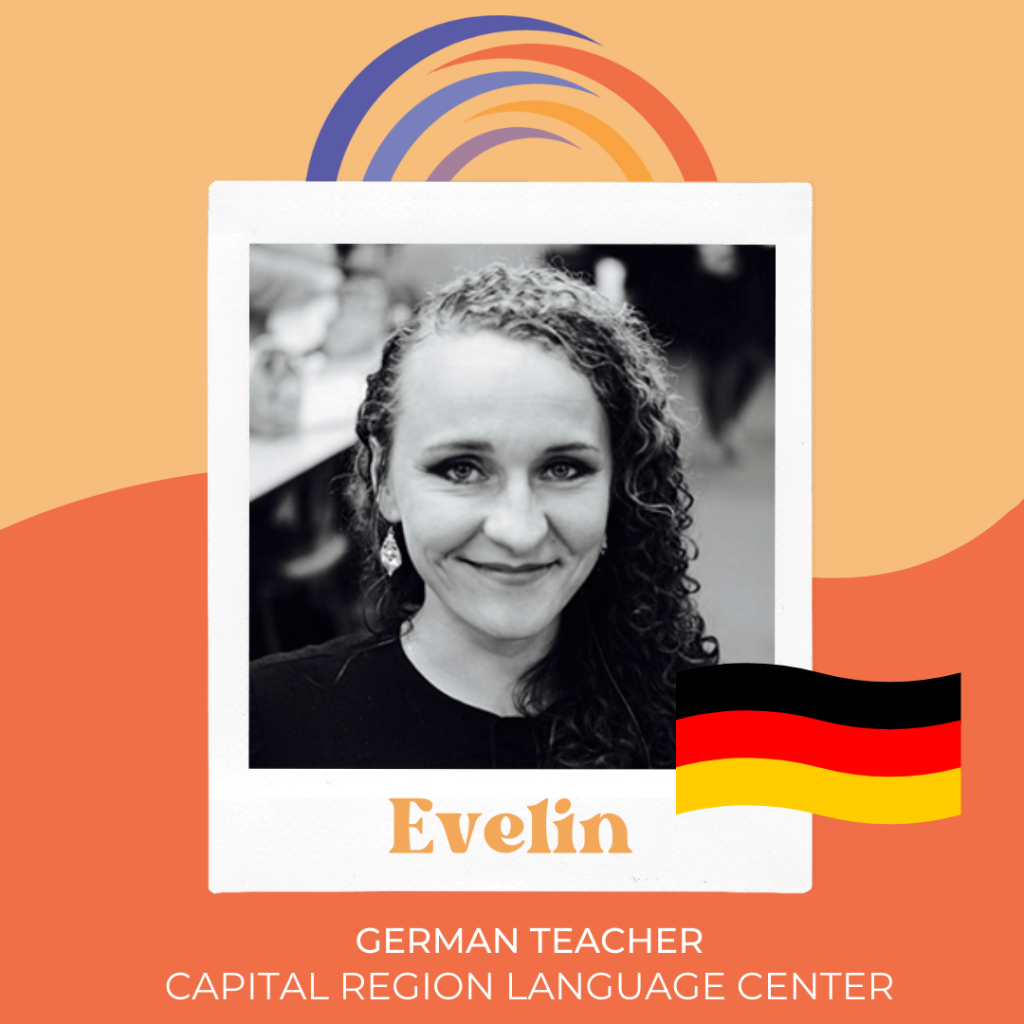
Why did you become a language teacher?
As a German instructor, I’ve found a profound connection to my mother tongue, enabling me to preserve and share the rich tapestry of German culture and language. The joy of encountering students eager to learn German is immense, and it fills me with pride to guide them on their linguistic journey.
My passion for teaching German is deeply rooted in my desire to stay connected to my cultural heritage and the fulfillment I get from helping others understand and appreciate the nuances of the German language and culture.
Can you share an example of how language instruction has helped a local business or organization?
I taught German to a young Chinese student who had recently moved to Switzerland. Her goal was to achieve an A2 level in German, a requirement for her residency permit. Our focus was not only on the language but also building her confidence and improving her speaking abilities.
These newly developed skills were quickly noticed and appreciated by her German-speaking colleagues at work. As a result of our lessons, she successfully attained the necessary language certification. This accomplishment, coupled with her increased confidence, empowered her to seek and secure a higher position in her job.
What is your favorite German word? What does it mean and why do you love it?
I can’t pinpoint just one word in German as my favorite. There are far too many that encapsulate the essence of German culture and thought! Raising my daughter bilingually has naturally woven many German expressions into our family’s daily life, to the point where even my American husband understands and sometimes uses them. We often use phrases like describing someone as “tired of life” when they recklessly endanger themselves.
Additionally, certain words like “Schadenfreude” or “Fremdschämen” are uniquely German, lacking direct English equivalents. These words can succinctly capture complex situations or emotions in a way that no other language can!
We invite you to learn more about our teachers and explore the 12 languages we offer. You can also explore the types of programs and services we offer or sign up for our newsletter. To inquire about classes or business workshops, email us at: info@crlcalbany.org.
